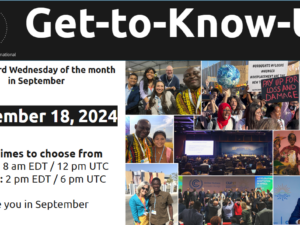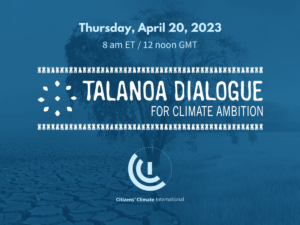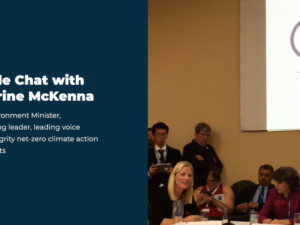A Talanoa Dialogue for Global Women in All Their Diversity
A Talanoa Dialogue is a fierce and honest dialogue. Watch the 3:30 minute video of women sharing their climate ambitions and solutions. Contributers included women from Kenya, Somalia, Uzbekistan, Ghana, Nigeria, Uganda, Panama and Sweden.
Keep Reading
The Process
Women are asked to answer fiercely three questions in three minutes with regards to the climate emergency:
1. Where are we at?
2. What do we need to do?
3. How do we get there?
Participants will be live on zoom, audio recordings and video recordings
A Safe Space
Talanoa fosters stability and inclusiveness in dialogue, by creating a safe space that embraces mutual respect in decision-making platforms for a greater good. To facilitate the creation of this safe space, Talanoa dialogues are conducted under Chatham House Rules. Anyone who comes to a meeting is free to use information from the discussion, but is not allowed to reveal who made any particular comment.
Background on Talanoa Dialogues
Talanoa is a traditional word used in Fiji and across the Pacific to reflect a process of inclusive, participatory and transparent dialogue. The purpose of Talanoa is to share stories, build empathy and to make wise decisions for the collective good. The process of Talanoa involves the sharing of ideas, skills and experience through storytelling. During the process, participants build trust and advance knowledge through empathy and understanding. Blaming others and making critical observations are inconsistent with building mutual trust and respect, and therefore inconsistent with the Talanoa concept.
Why Conduct a Talanoa Dialogue with Women in All Their Diversity
We need everyone to stand up and support equity-driven climate solutions. Women and girls experience the greatest impacts of climate change and they also have been systematically excluded from many decision-making opportunities, resources, institutions, and spaces to support their own growth and leadership.
Studies show that gender equality—for example, a greater proportion of women in national government —is strongly associated with more robust environmentalism on a national level. Women in national legislatures have shown to vote for more stringent climate and environmental protections. Among many reasons, some include the fact that more harm from environmental degradation is felt by women and that women participate more than men in social movements.
What will we do with the stories shared in the Talanoa Dialogues
- We will create an online presence of the dialogues shared without divulging the identities of the women who shared their stories and perspectives.
- The insights shared with us will be brought to the W7 meeting in Germany in October, the UNFCCC COP 27 in November in Egypt and the Global Biodiversity COP 15 in Montreal, Canada in December.
- Most importantly, the fierce sharing by women in all the diversity will change the DNA of our organization for the greater good. We are our stories and our members are the source of power.








